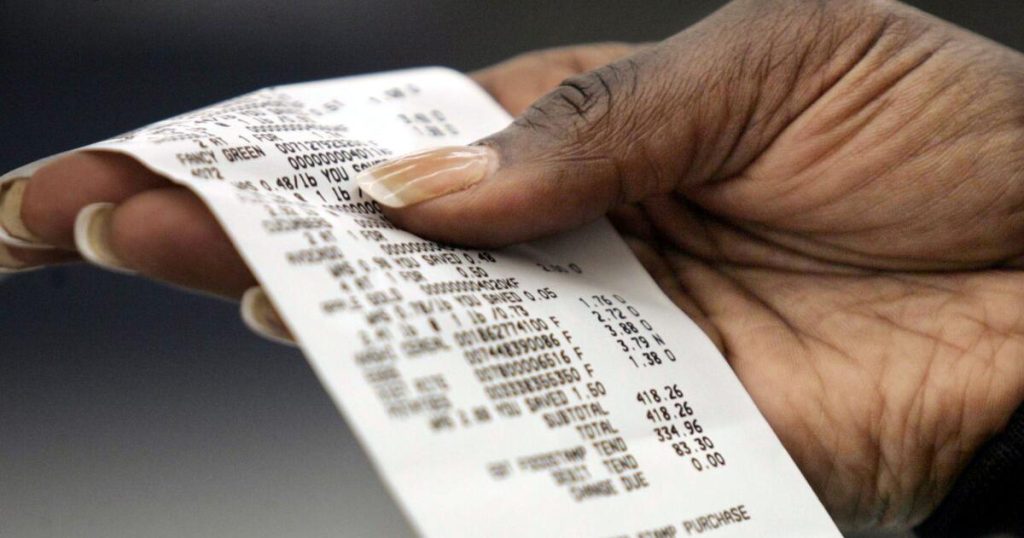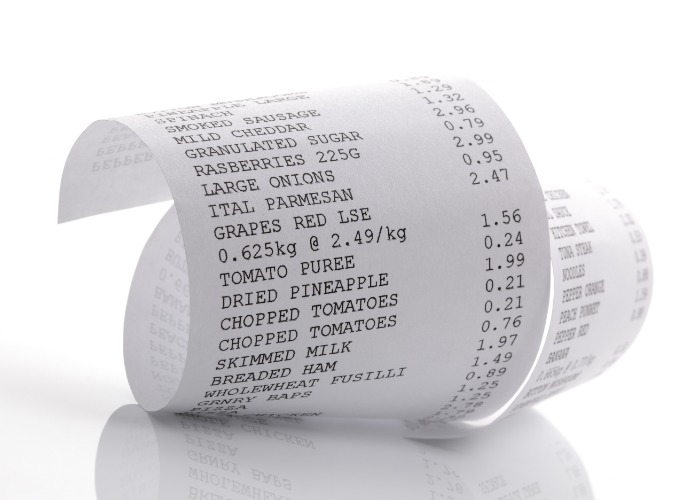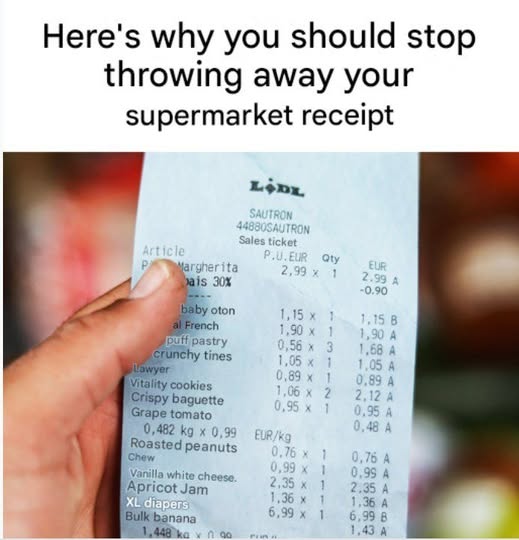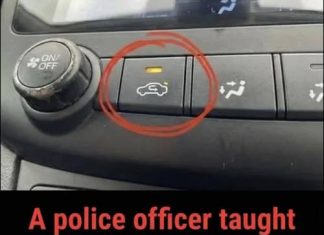Shopping at your local supermarket may seem like a routine task grab your items, pay, and go. But there’s one small slip that many of us overlook: picking up the receipt. Skipping this step might save a moment now, but it can cost you later.
1. Proof of Purchase for Returns and Exchanges
Perhaps the most obvious reason to keep a receipt is that it serves as proof of purchase. If you decide to return or exchange an item—whether due to a defect, spoilage, or simply a change of mind—the store often requires the original receipt. Without it, you may be denied the refund or forced to accept store credit at a reduced value. Your chances of a smooth, hassle-free return go up significantly when you can show that slip of paper.

2. Accurate Payment Verification
Taking your receipt gives you the opportunity to review your purchases before leaving the store. Mistakes happen: prices may be incorrectly entered, discounts may be omitted, or unintended items might have been scanned. Checking your receipt immediately helps you catch these errors while still on site, allowing the cashier to correct them on the spot. This not only avoids overpaying but also ensures your budget stays accurate.
3. Budgeting and Expense Tracking
For anyone managing finances closely, receipts are a vital tool. Whether you’re using a budgeting app, keeping a manual log, or reviewing your bank statement, the detailed breakdown on a receipt helps you categorize spending accurately. You can see exactly how much you’re spending on essentials like produce, household goods, and personal items. Over time, this data helps you identify spending patterns and make informed decisions about your groceries.
4. Warranty or Promotion Claims
Some products sold in supermarkets may include limited warranties—or be part of promotional offers that require proof of purchase. If your purchase qualifies for a rebate or extended warranty, the receipt often serves as the verification needed to claim these benefits. Losing your receipt may render you ineligible, even if you legitimately purchased the item.
5. Dispute Resolution
Discrepancies can arise—whether from a loyalty program, a coupon, or a payment processing error online or in-store. Should you need to review or dispute such issues, receipts act as an important document. They help store managers trace transactions, check loyalty points, or verify coupon usage. Having the actual receipt simplifies dispute resolution and can save you frustration later on.
6. Environmental Considerations (Receipts and Digital Options)
It’s true: paper receipts contribute to waste and are often printed using chemicals. Many stores now offer digital receipts sent to your email or smartphone app. These digital options are eco-friendlier and just as effective for the purposes outlined above. However, if digital receipts aren’t available or you prefer a physical copy, taking the printed receipt still outweighs discarding it. An added tip: recycle your paper receipts when they’re no longer needed or store them electronically via scanning.
7. Tax Documentation
If you or your business can deduct certain grocery expenses—for instance, special ingredients for business use—having the receipt is key to substantiating those deductions during tax reporting. Keeping your receipts, especially for large or irregular purchases, ensures you have documentation to support your claims if audited.
8. Empowerment and Mindful Shopping
Finally, taking a receipt reinforces a mindful shopping habit. It’s a small act of accountability: you acknowledge each purchase, reinforce your spending awareness, and stay empowered over your finances. It’s a moment to pause and reflect, even if only for a few seconds.

ConclusionIn the end, taking your supermarket receipt may seem like a tiny step, but it can make a big difference. From ensuring you get refunds and exchanges with ease, to catching pricing errors, tracking your spending, and safeguarding warranty claims, that slip of paper is more valuable than it looks. Whether you choose a printed copy or a digital one, keeping your receipt is a simple habit that can save you money, prevent disputes, and give you peace of mind. So next time you’re at the checkout, remember—don’t leave without it.

















